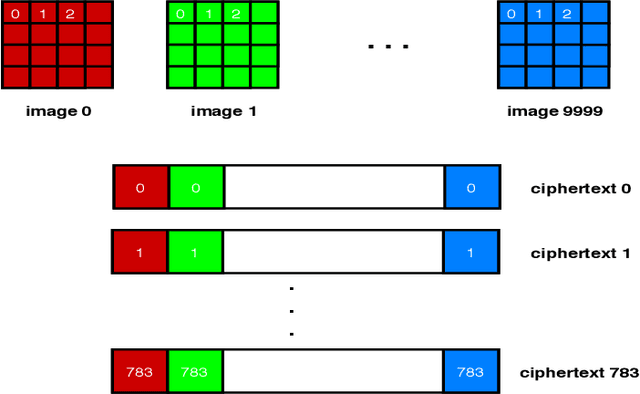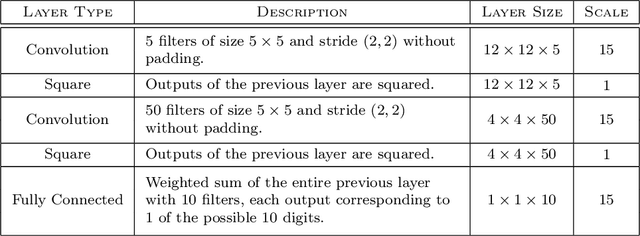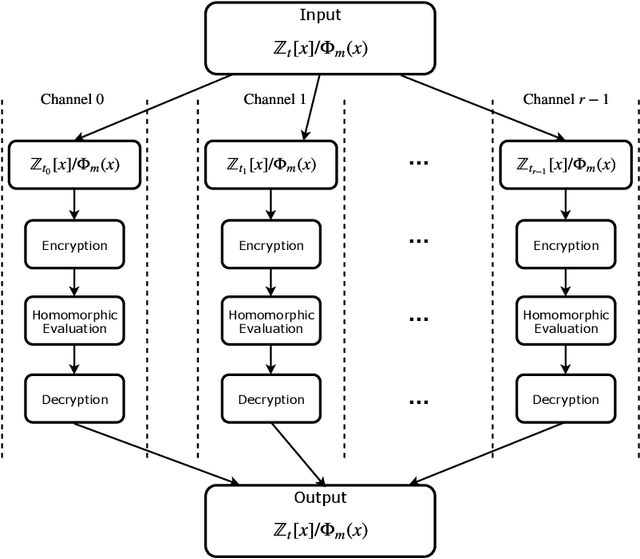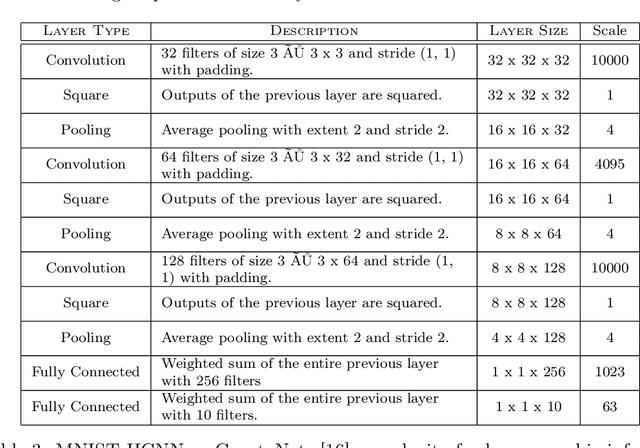Benjamin Hong Meng Tan
Skellam Mixture Mechanism: a Novel Approach to Federated Learning with Differential Privacy
Dec 08, 2022


Abstract:Deep neural networks have strong capabilities of memorizing the underlying training data, which can be a serious privacy concern. An effective solution to this problem is to train models with differential privacy, which provides rigorous privacy guarantees by injecting random noise to the gradients. This paper focuses on the scenario where sensitive data are distributed among multiple participants, who jointly train a model through federated learning (FL), using both secure multiparty computation (MPC) to ensure the confidentiality of each gradient update, and differential privacy to avoid data leakage in the resulting model. A major challenge in this setting is that common mechanisms for enforcing DP in deep learning, which inject real-valued noise, are fundamentally incompatible with MPC, which exchanges finite-field integers among the participants. Consequently, most existing DP mechanisms require rather high noise levels, leading to poor model utility. Motivated by this, we propose Skellam mixture mechanism (SMM), an approach to enforce DP on models built via FL. Compared to existing methods, SMM eliminates the assumption that the input gradients must be integer-valued, and, thus, reduces the amount of noise injected to preserve DP. Further, SMM allows tight privacy accounting due to the nice composition and sub-sampling properties of the Skellam distribution, which are key to accurate deep learning with DP. The theoretical analysis of SMM is highly non-trivial, especially considering (i) the complicated math of differentially private deep learning in general and (ii) the fact that the mixture of two Skellam distributions is rather complex, and to our knowledge, has not been studied in the DP literature. Extensive experiments on various practical settings demonstrate that SMM consistently and significantly outperforms existing solutions in terms of the utility of the resulting model.
The AlexNet Moment for Homomorphic Encryption: HCNN, the First Homomorphic CNN on Encrypted Data with GPUs
Nov 02, 2018



Abstract:Fully homomorphic encryption, with its widely-known feature of computing on encrypted data, empowers a wide range of privacy-concerned cloud applications including deep learning as a service. This comes at a high cost since FHE includes highly-intensive computation that requires enormous computing power. Although the literature includes a number of proposals to run CNNs on encrypted data, the performance is still far from satisfactory. In this paper, we push the level up and show how to accelerate the performance of running CNNs on encrypted data using GPUs. We evaluated a CNN to classify homomorphically the MNIST dataset into 10 classes. We used a number of techniques such as low-precision training, unified training and testing network, optimized FHE parameters and a very efficient GPU implementation to achieve high performance. Our solution achieved high security level (> 128 bit) and high accuracy (99%). In terms of performance, our best results show that we could classify the entire testing dataset in 14.105 seconds, with per-image amortized time (1.411 milliseconds) 40.41x faster than prior art.
 Add to Chrome
Add to Chrome Add to Firefox
Add to Firefox Add to Edge
Add to Edge